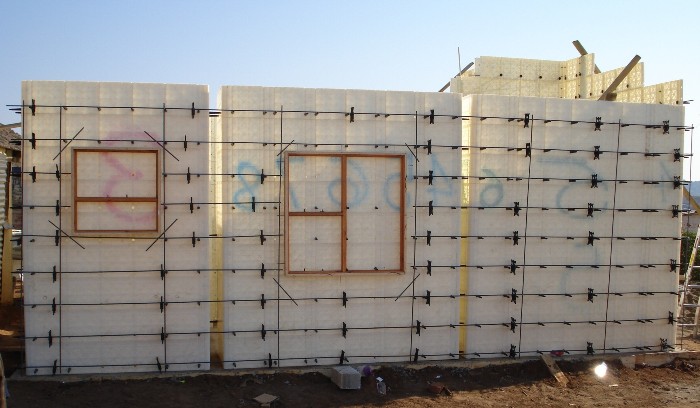African countries facing huge challenges in providing proper human settlements to their citizens should seriously consider the Moladi system. Moladi, a multi-award winning construction system that was developed in South Africa in 1986, makes housing accessible to low-income groups through innovative and eco-friendly technology.
Development experts have attested that decent housing is one of the key factors in the fight against poverty and social exclusion. It is not just about putting a roof over someone’s head. Academic research proves that access to a clean and stable home implicates an improvement in security, health and education.
The system consists of a reusable and recyclable plastic formwork mould, which is filled with stone-less concrete and a special chemical additive. This additive ensures once the mortar is set, the formwork can be removed – and reused up to 50 times.
According to the founder Hennie Botes, the brickless walls can withstand all types of weather. The formwork is lightweight allowing easy transportation.
Also read:Moladi to help reduce costs on conventional building techniques through new technology
Additionally, the construction costs can be reduced significantly owing to the simplicity in design and recyclability. The Moladi model is not only cost-effective but fast too, as the wall structure can be completed within a day. The construction also does not require heavy machinery or electricity.
Due to the simplicity of the approach, construction techniques and skills can be transferred in a short time. Meanwhile, the African Union for Housing Finance, which is promoting housing finance on the African continent, is a member-based association of mortgage banks, building societies, housing corporations and other organizations involved in the mobilization of funds for shelter and housing on the African continent.
The AUHF also commissions research, currently in collaboration with the Centre for Affordable Housing Finance in Africa.
According to the Leilani Farha, United Nations’ special rapporteur on the right to housing, financial speculation has led to an “unsustainable” global housing crisis.
In Farha latest report on global housing need, she reveals that the world’s money markets have priced people out of cities, with speculators treating housing as a “place to park capital”.
